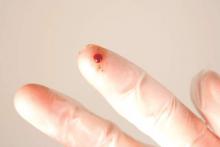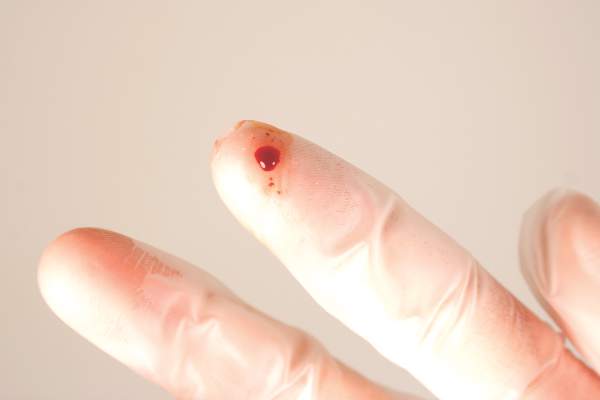User login
The issue of lead poisoning is getting attention not just in Flint, Mich., but also in New Hampshire.
Dr. William Storo, president of the New Hampshire Pediatric Society, recently sent an email to all of the state’s pediatricians, reminding them that the state’s Department of Health and Human Services has found New Hampshire’s pediatric elevated blood lead level rates are 2.5 times the national average. Of the 10,281 children aged 5 years who were tested for lead at some point in their lives, 15% had an elevated blood lead level of 5 mcg/dL or higher in a 2014 New Hampshire study.
This is true because “more than half of the housing [was] built before lead paint was banned in 1978,” he said.
Yet, only 37% of the state’s 2-year-olds underwent blood lead testing in 2014. Dr. Storo’s email is a call for New Hampshire pediatricians to improve that percentage. The information-filled email – prepared by Gail Gettens of New Hampshire’s Healthy Homes and Lead Poisoning Prevention Program – is available at pediatricnews.com.
The Pediatric News website also includes links to information about lead poisoning testing and treatment from the American Academy of Pediatrics, the Centers for Disease Control and Prevention, and several other states. Go to pediatricnews.com and scroll down the left side to click on Physician Resources; then look for Lead Poisoning.
The issue of lead poisoning is getting attention not just in Flint, Mich., but also in New Hampshire.
Dr. William Storo, president of the New Hampshire Pediatric Society, recently sent an email to all of the state’s pediatricians, reminding them that the state’s Department of Health and Human Services has found New Hampshire’s pediatric elevated blood lead level rates are 2.5 times the national average. Of the 10,281 children aged 5 years who were tested for lead at some point in their lives, 15% had an elevated blood lead level of 5 mcg/dL or higher in a 2014 New Hampshire study.
This is true because “more than half of the housing [was] built before lead paint was banned in 1978,” he said.
Yet, only 37% of the state’s 2-year-olds underwent blood lead testing in 2014. Dr. Storo’s email is a call for New Hampshire pediatricians to improve that percentage. The information-filled email – prepared by Gail Gettens of New Hampshire’s Healthy Homes and Lead Poisoning Prevention Program – is available at pediatricnews.com.
The Pediatric News website also includes links to information about lead poisoning testing and treatment from the American Academy of Pediatrics, the Centers for Disease Control and Prevention, and several other states. Go to pediatricnews.com and scroll down the left side to click on Physician Resources; then look for Lead Poisoning.
The issue of lead poisoning is getting attention not just in Flint, Mich., but also in New Hampshire.
Dr. William Storo, president of the New Hampshire Pediatric Society, recently sent an email to all of the state’s pediatricians, reminding them that the state’s Department of Health and Human Services has found New Hampshire’s pediatric elevated blood lead level rates are 2.5 times the national average. Of the 10,281 children aged 5 years who were tested for lead at some point in their lives, 15% had an elevated blood lead level of 5 mcg/dL or higher in a 2014 New Hampshire study.
This is true because “more than half of the housing [was] built before lead paint was banned in 1978,” he said.
Yet, only 37% of the state’s 2-year-olds underwent blood lead testing in 2014. Dr. Storo’s email is a call for New Hampshire pediatricians to improve that percentage. The information-filled email – prepared by Gail Gettens of New Hampshire’s Healthy Homes and Lead Poisoning Prevention Program – is available at pediatricnews.com.
The Pediatric News website also includes links to information about lead poisoning testing and treatment from the American Academy of Pediatrics, the Centers for Disease Control and Prevention, and several other states. Go to pediatricnews.com and scroll down the left side to click on Physician Resources; then look for Lead Poisoning.

